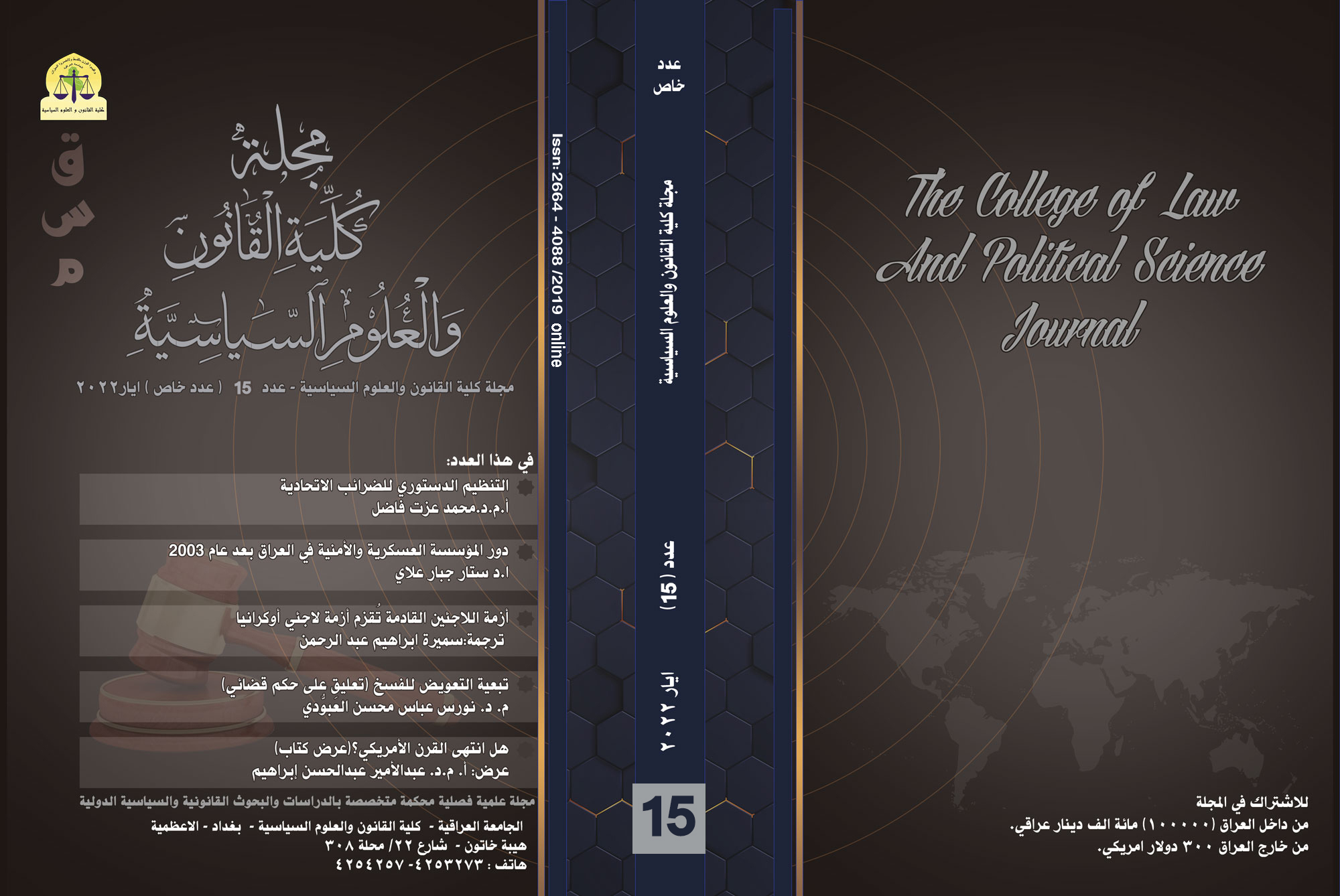Legislative shortcomings in the Iraqi Code of Criminal Procedure
DOI:
https://doi.org/10.61279/qhmjh148Keywords:
lawAbstract
As it is known, the purpose of drafting a law is to set the civilian
relationships among themselves in order on one hand and their relationship
to authority on the other; as legal texts are a mere expression of the
legislator’s volition, therefore, no matter the effort spent by the legislator,
he cannot take note of the legal links that might take place in the future
to draft legal texts that would organize and manage it. For this reason, in
RUGHUWRNHHS XSZLWKWKHFRQVWDQWVRFLHWDOFKDQJHV GHÀFLHQFLHVLQOHJDO
WH[WVVKRXOGEHUHIRUPHGDQGUHFWLÀHGDQGVLQFHOHJDOWH[WVDUHPDQPDGH
—and man is a fallible creature— one should not expect those legal texts to
EHLPSHFFDEOH([DPSOHVRIWKRVHOHJLVODWLYHGHÀFLHQFLHVFDQEHIRXQGLQ
procedural penal texts such as ambiguity, inconsistency which leaves no
FKRLFHIRUWKHOHJLVODWRUEXWWRLQWHUIHUHLQRUGHUWRUHFWLI\WKRVHGHÀFLHQFLHV
7KHVHGHÀFLHQFLHVDUHLQHYLWDEOHDQGDUHWKHQDWXUDOFRXUVHRIOLIHLQLWVQRQ
static and perpetual alteration and development. Therefore, no legal text can
contain them and no legislator can predict them unless by assumption; and
assumption can be relatively small and limited
Downloads
Published
Issue
Section
License
Copyright (c) 2023 The college of law and political science journal

This work is licensed under a Creative Commons Attribution-NonCommercial-NoDerivatives 4.0 International License.

